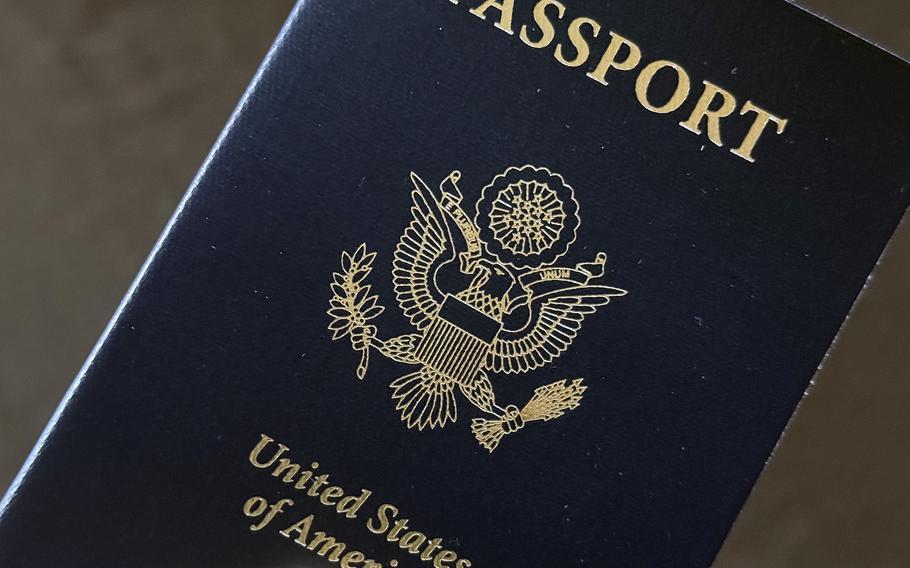
A new electronic passport control system that the European Union planned to roll out in November is being delayed. The system could make traveling to the bloc more complicated for many Americans and other non-EU visitors. (Michael Abrams/Stars and Stripes)
VICENZA, Italy — A new European Union passport control system that will trade document stamps for collection of biometric data is being pushed back again, leaving Defense Department personnel guessing about how the coming change will affect them.
The Entry/Exit system, which was intended to be in place by Nov. 10, applies to visitors who need a short-term visa to travel to European countries and also to those who do not need a visa but are limited in how long they can stay, such as American tourists.
Non-EU nationals who hold residence permits and long-term visas are exempt, according to the European Commission. It’s unclear whether that includes Defense Department personnel, as countries use different procedures under their status of forces agreements.
In Italy, for example, military and civilian personnel have long-term visas, while in Germany they have SOFA stamps in their passports or laminated cards that entitle them to reside there.
“It will not change the SOFA agreement in individual countries. The question is, we really haven’t gotten a read on how this experience will be handled when it comes to implementation,” said Charles Prichard, a U.S. European Command spokesman.

Journeying to Europe to take in spots like the Eiffel Tower may become more complicated for non-EU travelers once a new EU electronic passport control system takes effect. For Defense Department personnel in Europe, there is uncertainty about how the transition, which is being pushed back, will affect their travel. (Michael Abrams/Stars and Stripes)
The commission is now considering a phased approach rather than rolling out the system across the EU at the same time.
“It is our understanding that entry conditions into the EU will not change” for DOD personnel, Prichard said.
EUCOM leaders have told personnel in Europe that passport control officers may take security measures as necessary, such as collecting face images and fingerprints, he said.
The process can be quicker if travelers register in advance, Prichard added.
The European Commission has proposed a new mobile app where travel credentials and plans can be uploaded ahead of time. There will also be self-service systems to register at some border crossings.
The European Commission has not published a timeline for the app’s release, though some EU member states, including the Netherlands, Finland and Croatia have their own digital passport apps.
Long-term visa holders are exempt from the system only in their country of residence. Those who go on leave to another European Union country will have to register with the new system, although that could change in the future, Prichard said.
Once the system is implemented, non-EU citizens visiting the bloc will be fingerprinted and have their face photographed.
There is no standardized approach for how airports will handle the process under the new system. Some could have a separate line for long-term visa holders, while others could keep their current non-EU customs lines for all passengers, including both tourists and visa holders.
“The EU has not said, ‘OK, here’s what’s going to happen at every border you cross.’ All we have is the basic structure,” Prichard said.
The European Commission has said the data collected will allow countries to share information in real time, identify those who overstay their visas, combat identity fraud and increase security.
In 2023, there were more than 600 million border crossings from the EU’s external borders, according to the commission.